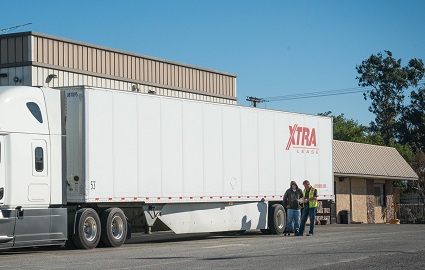
The #1 Way to Return Rental Trailers Fast
It was 2 pm. Tom had spent the last eight hours wrangling drivers, equipment and contracts. Now he was looking forward to that first bite of smoked ham and cheddar with double mustard. He’d just picked up the sandwich when the phone rang.
He sighed, wiped mustard from his fingers and answered. “Tom’s Transport. Tom speaking.”
“Hi, Tom, this is Carl. You were asking when we could return those two trailers you rented.”
“Yeah?” said Tom.
“We can’t,” said Carl.
“Do we need them for another job?” asked Tom.
“We might,” said Carl, “but they’re gonna be hard to load.”
“Why’s that?”
“Because I can’t find them,” said Carl.
It happens. Even under the watch of the most experienced fleet managers, trailers go missing from time to time.
When a trailer’s hooked to a tractor, your in-cab telematics can tell you its location. But when a trailer’s unhooked and has no telematics of its own, it’s vulnerable to “unauthorized interchange.” And when that happens, it costs.
Q. What’s the #1 reason fleet managers don’t like to rent trailers?
A. They lose them in their system.
They rent for a good reason, expecting to pay $35 a day for three days. Three months later they owe more than $1,300 because that rental trailer got lost in the yard of their biggest customer’s distribution center.
When they do find it to turn it in, they may be faced with a bill for damage because that trailer’s been banged around for a few months.
So, we have to ask…why would you rent a trailer you can’t track? What’s the cost of a rental you can’t see?
Some carriers say, “We just don’t lose that many trailers.” Fair enough. But what does it cost to lose just ONE?
Let’s do a quick calculation:
![]()
You planned to rent a trailer for only three days, but you ended up keeping it for three months because it got misplaced.
If you subtract the amount you expected to pay from the amount you ended up owing, it looks like returning just one trailer after three days instead of three months could have saved you at least $1,380.
And that’s for only one trailer.
The #1 way to return rented trailers fast? Use trailer tracking.
Why pay for a rental trailer that’s just sitting empty in your customer’s back 40? Or that’s being used for storage? Or, worst of all, that’s headed to the coast because it was loaded and hooked to another company’s tractor by mistake? All the while, you’re racking up rental cost.
Trailer tracking is the #1 way to see what’s going on with your rental when it’s unhooked, so you can return it fast.
The next time you need to rent trailers, why not follow these steps?
- Rent trailers that have tracking.
- When you’re finished with the trailer, locate it using trailer tracking data.
- Return the trailer.
- Repeat as needed.
Insisting on trailer tracking with your rentals is your choice, of course. But what have you got to lose when it’s free?
- You may also like the article "Dormancy: Are you losing revenue and paying to do it?"
- Learn about a real-life application of trailer tracking: Swift Transportation success story.
- To learn more about trailer tracking at XTRA Lease, visit our trailer tracking web page.
- For FAQs about trailer tracking at XTRA Lease, visit our trailer tracking web page.